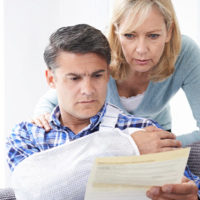Florida’s Good Samaritan Law

When an accident of any kind occurs where the potential for injury exists, immediate medical help may not always be available. If this is the case, sometimes average people will jump in to help, providing what most states call Good Samaritan aid. In some situations, however, rendering aid to an accident victim may leave those just trying to help open to lawsuits. It is important to understand Florida’s law on the subject lest doing a good deed wind up putting you in a bad spot.
One Law For All
Perhaps the most important thing to keep in mind is that while in other states, different laws apply to those in the medical profession, Florida’s Good Samaritan law applies to anyone who chooses to intervene to assist an accident victim. The relevant statute explicitly includes those “licensed to practice medicine,” and the general rationale is that anyone, even someone trained in lifesaving techniques, may make an error for which they may be held responsible. The text of the statute holds that anyone, including medical personnel, who “willingly, and in good faith” provides emergency medical care or treatment will be immune from liability over any injury stemming from that treatment, with certain exceptions.
In Florida, there is no general duty to stop and assist a person in peril. However, when one does stop, a duty of care attaches to those actions, and ‘due care’ is much more undefined when talking about two laypeople versus discussing the duties of an educated person (a doctor, nurse, paramedic or other person with medical training). Laypeople can be held liable for injuries to an accident victim if they can be shown to not have exercised reasonable care – generally, if they attempted to or told the victim that they had made the injury better, when in fact they made it worse.
Are You A Medical Professional? It Matters
Florida’s Good Samaritan law distinguishes accident and emergency situations from the standard practice of medicine, which is important because in certain situations, a medical doctor or nurse may be about as much use as an average layman, thus affecting the duty of care they may owe to the injured patient. For example, an OB/GYN will be of not much more use than a layman to a man having a heart attack, but may be ideally placed to assist a woman giving birth prematurely. The standard of care for a professional is different than the standard for an uneducated layman.
While the standard of care for a layperson as a Good Samaritan is a bit unclear, medical doctors and other workers are generally only held liable if their conduct is held to be in “reckless disregard” of the consequences to the patient. This is a higher standard than reasonable or ordinary care, because at least in theory, medical professionals know better. For example, a layperson may cause injuries to the neck or chest while trying to perform CPR, and generally not be found liable, because they reasonably believed they were helping. A medical professional would be better educated in how to perform CPR, and might stand a higher chance of being found liable for such injuries if they were deemed to be educated in a reckless or lazy way, without regard to whether or not they would be successful.
Contact Our Tampa Bay Injury Attorneys
If you have been in an accident, and you believe that a ‘Good Samaritan’ made matters worse, or if you tried to do a good thing and were threatened with suit, calling a lawyer may be the best step you can take to ensure you understand your position. The Tampa injury attorneys at the Rinaldo Law Group can help you unravel what can be a complicated legal theory, and decide how best to proceed. Contact us today to schedule a free consultation.
Resource:
leg.state.fl.us/Statutes/index.cfm?App_mode=Display_Statute&URL=0700-0799/0768/Sections/0768.13.html
